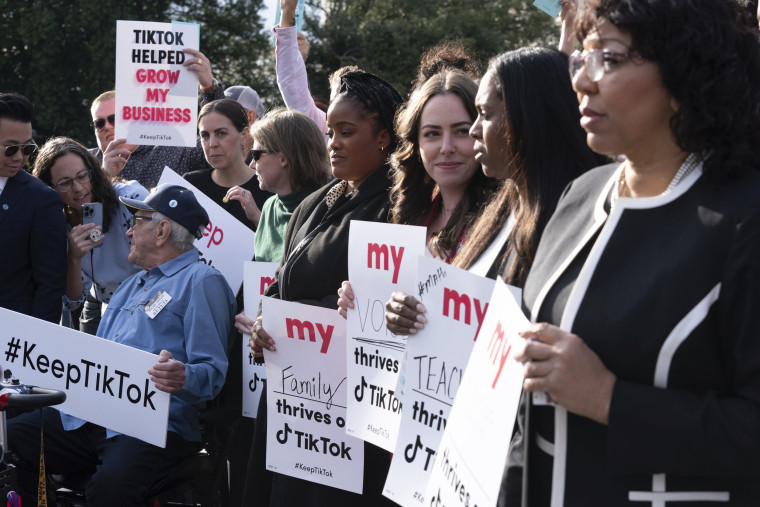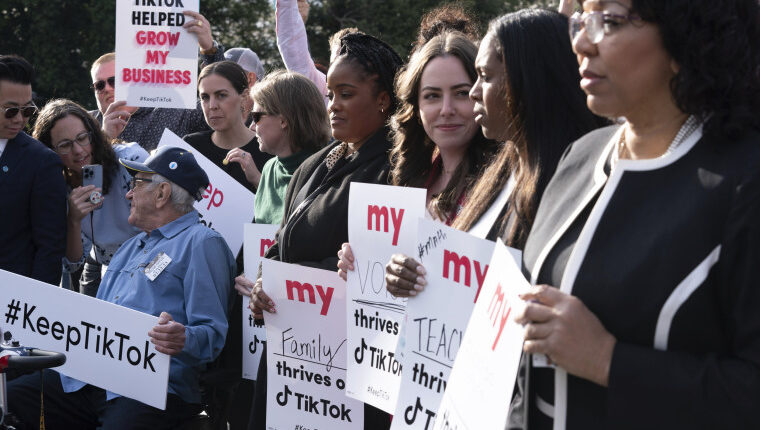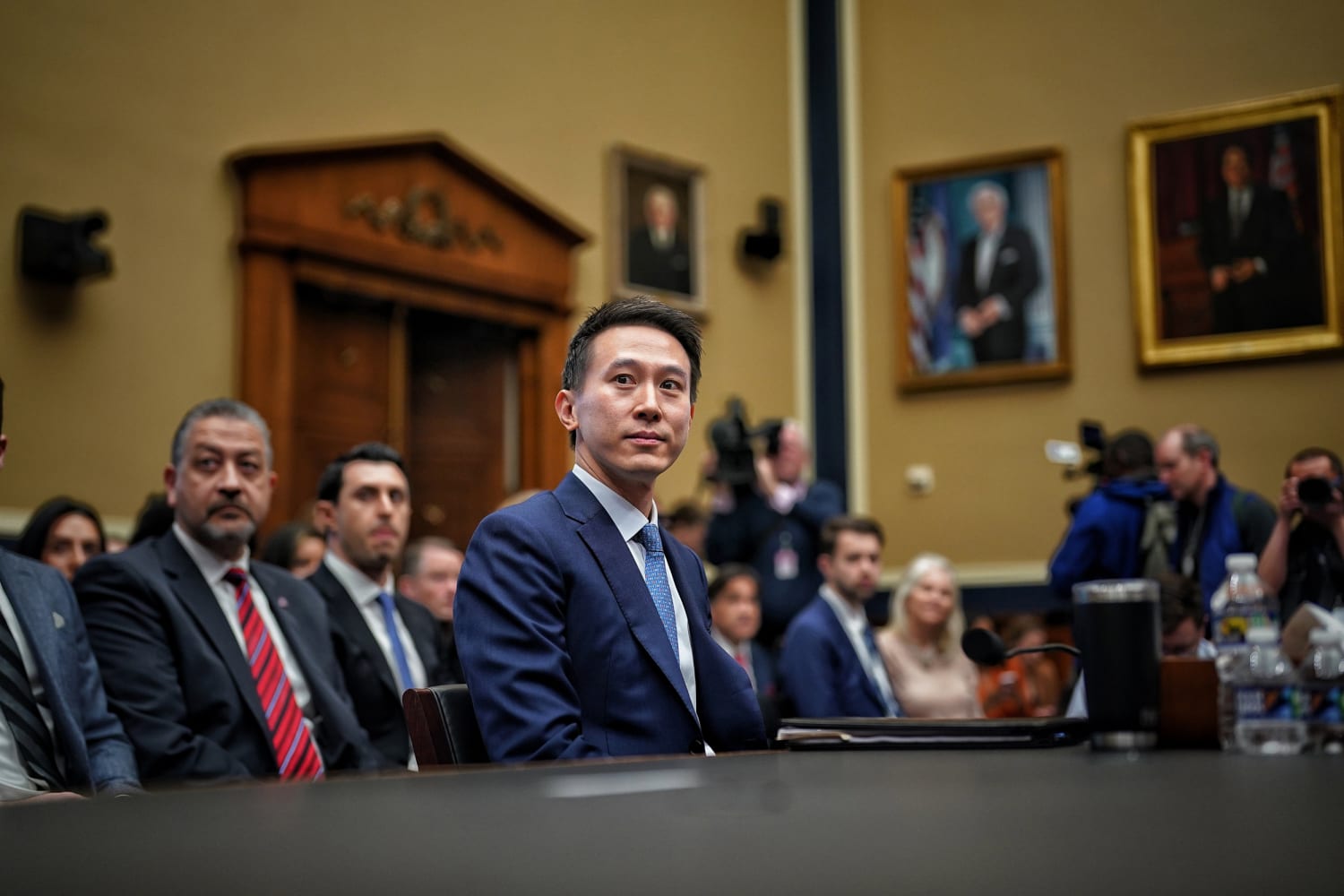Leaders of the House Energy and Commerce Committee, however, want to go bigger. Last year, they passed the American Data Privacy and Protection Act through committee on an unusually lopsided 53-2 vote, but that legislation did not get a full floor vote either.
This year, they plan to unveil a sweeping online privacy and security bill that builds on that legislation to include greater protections for minors and to create a national standard for how tech companies collect, process and distribute the data of Americans of all ages.
Rep. Cathy McMorris Rodgers, R-Wash., who chairs the Energy and Commerce Committee, said she’s been speaking about privacy legislation with her Senate counterparts, including Commerce Chair Maria Cantwell of Washington, and Sen. Ted Cruz of Texas, the top Republican on that committee.
“I’m encouraged. There’s a growing recognition as to the need,” McMorris Rodgers told reporters.
But California Democrats have criticized a broader privacy bill that they say would undermine tougher state privacy laws like the one they have in the Golden State.
In an interview in his office, Cruz acknowledged that passing a narrower bill that focused on minors was much more likely than comprehensive legislation.
“I think privacy writ large is incredibly important. I don’t know that we will get a broad privacy bill passed this Congress; there are still some differences between the parties,” Cruz said. “I’m quite optimistic that, at a minimum, we will pass meaningful protections for children’s online privacy.”
Blumenthal agreed that doing a comprehensive bill “is just more difficult.”
“But kids online safety? Shame on all of us if we fail to protect children. … There is a critical, a huge historic window of opportunity that we need to seize now. And we will disappoint a lot of Americans if we fail,” he said.
Clock ticking on TikTok
As tensions with Beijing ramp up, Democrats and Republicans have turned up the heat on the viral video app TikTok, owned by the Chinese tech company ByteDance. Sen. Mark Warner, D-Va., who chairs the Intelligence Committee, and Minority Whip John Thune, of South Dakota, are steadily building support for their Restrict Act, which would give the Commerce Department the power to regulate — or possibly ban — tech products from adversaries, including China, Russia and Iran.

Their bill, which does not specifically name TikTok, now has 25 co-sponsors — nearly evenly split between Republicans and Democrats — and is backed by President Joe Biden.
McMorris Rodgers said the House is aiming for a narrower, “more targeted” approach following last month’s blockbuster hearing, where Energy and Commerce members grilled TikTok CEO Shou Zi Chew for five hours over national security and personal privacy concerns.
The chair said she didn’t have a timeline for when a House bill on TikTok would be released. But lawmakers in both parties are growing increasingly concerned that the popular app could be used by the Chinese Communist Party to spy on TikTok’s 150 million American users or to control the content they see.
Blumenthal, a former Connecticut attorney general, recently signed on to the Warner-Thune bill. He believes Congress will pass something to rein in TikTok, despite the social media giant’s massive lobbying effort and campaign against a ban. “Never underestimate the power of tech to derail a needed effort,” he said.
‘The Age of AI’
Another fast-moving technology setting off alarm bells on the Hill is artificial intelligence. After China proposed new regulations for the AI industry, Senate Majority Leader Chuck Schumer of New York this week said he’s circulated a “framework” for rules to help the U.S. stay competitive with Beijing on the regulatory front and rein in potentially damaging AI tools.

While generative AI tools have gained huge popularity — OpenAI’s ChatGPT chatbot has attracted more than 100 million monthly users in mere months — some are being used for more nefarious purposes. Deepfake software has made it easier for people to make and sell nonconsensual sexually explicit material featuring the images of celebrities and other women. There’s also a fear that deepfakes could be used by foreign governments or other entities to interfere in future U.S. elections. And sophisticated scammers are now using voice cloning software to trick unsuspecting victims to send money to people they believe are family members in distress.
“The age of AI is here, and here to stay,” Schumer said in a statement. “I look forward to working across the aisle, across the industry and across the country and beyond to shape this proposal and refine legislation to make sure AI delivers on its promise to create a better world.”
Meanwhile, Rep. Ted Lieu, D-Calif., who earned a computer science degree from Stanford, told NBC News he’s planning to roll out legislation soon that would create a bipartisan commission to make recommendations to Congress about what types of AI should be regulated and how lawmakers could do it.
“There’s nothing partisan about artificial intelligence,” said Lieu, a member of the House Democratic leadership team.
Sen. Brian Schatz, D-Hawaii, another member of the Commerce committee, agrees there is space and the will to pass new tech regulations before the next election.
“I think what causes us to have some more optimism is that it’s not polarized in obvious ways around political party. And that’s where the deal space lies,” the senator said in an interview. “The net neutrality fight and the section 230 fight were turned into partisan battles. But tech policy ought not to be that way and the Commerce Committee traditionally has worked in a bipartisan manner.”
“So I will say I’m more hopeful than I have been in the past several years.”
Source: | This article originally belongs to Nbcnews.com










